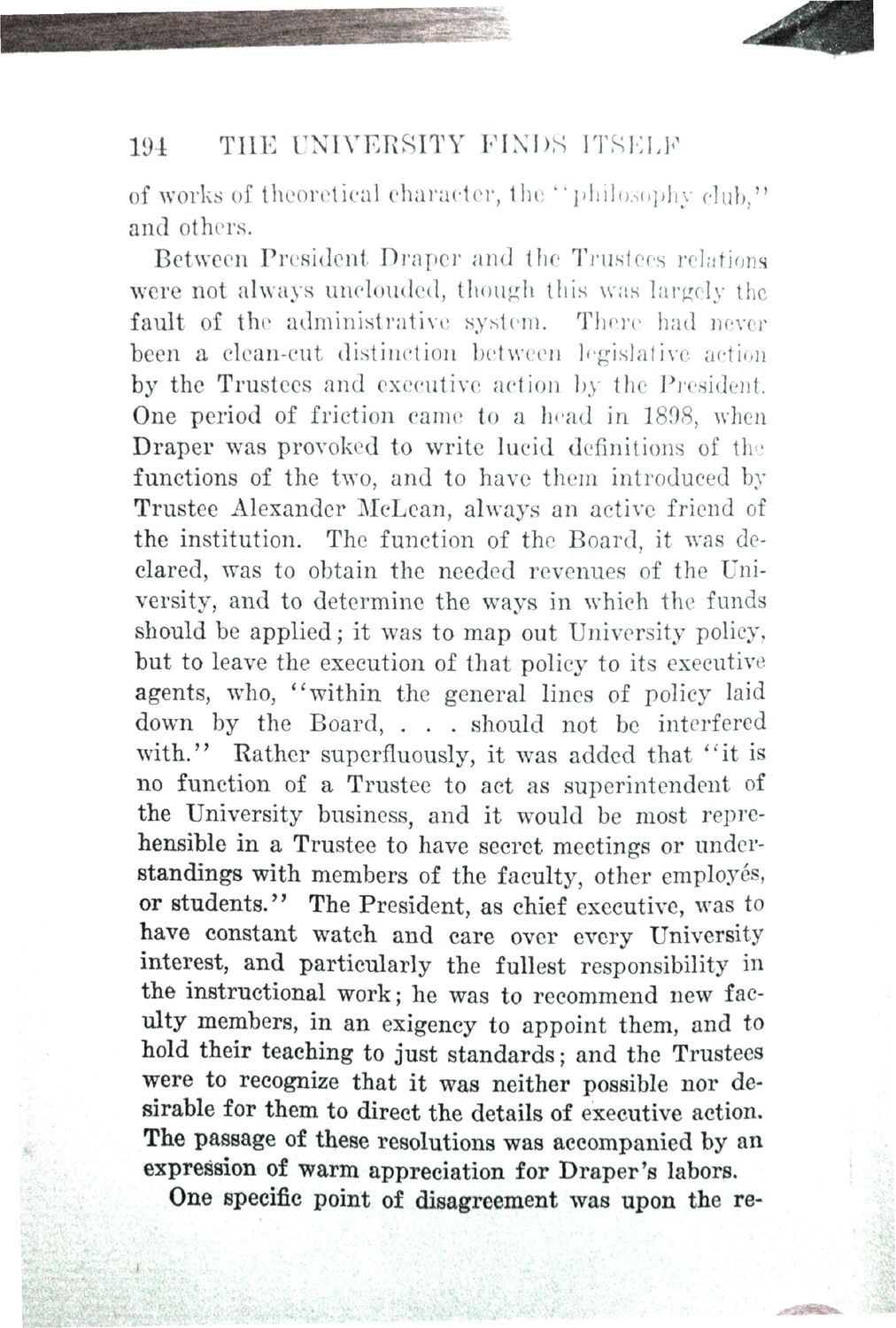| |
| |
Caption: Book - History of the University (Nevins)
This is a reduced-resolution page image for fast online browsing.

EXTRACTED TEXT FROM PAGE:
194 THE UNIVERSITY FINDS ITSELF of works of theoretical character, the j'philosophy club/' and others. Between President Draper and the Trustees relations were not always unclouded, though this was largely the fault of the administrative system. There had never been a clean-cut distinction between legislative action by the Trustees and executive action by the President. One period of friction came to a head in 1898, when Draper was provoked to write lucid definitions of the functions of the two, and to have them introduced by Trustee Alexander McLean, always an active friend of the institution. The function of the Board, it was declared, was to obtain the needed revenues of the University, and to determine the ways in which the funds should be applied; it was to map out University policy, but to leave the execution of that policy to its executive agents, who, "within the general lines of policy laid down by the Board, . . . should not be interfered with." Rather superfluously, it was added that "it is no function of a Trustee to act as superintendent of the University business, and it would be most reprehensible in a Trustee to have secret meetings or understandings with members of the faculty, other employes, or students." The President, as chief executive* was to have constant watch and care over every University interest, and particularly the fullest responsibility in the instructional work; he was to recommend new faculty members, in an exigency to appoint them, and to hold their teaching to just standards; and the Trustees were to recognize that it was neither possible nor desirable for them to direct the details of executive action. The passage of these resolutions was accompanied by an expression of warm appreciation for Draper's labors. One specific point of disagreement was upon the re-
| |